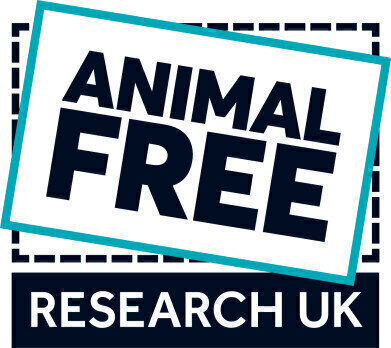-
.jpg)
-

-
 Jarrod Bailey
Jarrod Bailey
News
Phasing out the Use of Animals in Research: Will the UK follow the European Vote?
Sep 20 2021
“When talking about the phase-out of animal research, we feel it is important to emphasise what should be phased in: innovative, future-focused techniques that have the best possible chance of securing progress for patients.” Carla Owen
The adoption of a resolution vote on September 16, by the European Parliament, (1), has called on the European Commission to take more positive action to phase out the use of animals in experiments through an Action Plan structured around defined targets and milestones. Hailed as a significant turning point that could advance the progression of uptake and continuous advancement of alternative technology, will this initiative also push forward more progressive measures to be implemented by the UK Government?
Dr Jarrod Bailey, Science Director, Animal Free Research UK said: “I hope that this vote will give some impetus to calls for similar action in the UK, in line with the ‘Target Zero’ petition that we are running with Cruelty Free International and OneKind. This petition was only launched in July, and is already approaching 77,000 signatures, nearing the 100,000 needed to have a chance of being debated in Parliament. The UK government should see both – our petition and the EU vote - as barometers of feeling for where science should be heading, and both should engender confidence in them, rather than uncertainty, for a shift away from animal research and toward human-specific research methods. On top of that, I think that China’s apparent recent enthusiasm for enabling western scientists to conduct research using monkeys there will embolden this confidence: it will show the rest of the world how not to do something, rather than leading us to wonder what we could have done had animal research regulations not been relatively stricter in the UK. If the UK government’s responses and actions are evidence based, then we should see efforts here to facilitate and encourage a transition to humane and human-relevant research gather pace and substance – even if it’s for no other reason than to make sure the UK remains as a global science superpower, which is the government’s stated aim."
More action needed
While existing schemes have seen a small reduction in animal use over the last 3-4 years, a recent report (1) from Humane Society International (HIS) pointed out that the total number of procedures using animals in the UK had disappointingly remained static at over 3 million for the last 12 years.
In an open letter to the UK Government (Aug 19), scientists and professionals from 24 animal welfare groups including Animal Free Research UK, (AFRUK) also shared the opinion that in order for the ‘seven great healthcare challenges’ set out in the Government’s Life Sciences Vision (Cancer, Dementia, Mental Health, Obesity, Ageing, Respiratory Disease and Vaccines), medical research would urgently needed to be modernised.
Having been encouraged by recent Government plans to launch a review which will focus on replacing the use of animals in the development of medicines, AFRUK have also called on the Government to take decisive action in three areas;
To acknowledge the need to move towards the implementation of animal-free, human-relevant models of disease and make a clear commitment to doing so.
To develop and publish a detailed plan, with timetables and milestones, setting out how human-focused methods will be phased in, and animal experiments phased out.
Since this issue has a significant impact on public health and requires attention at the highest levels of Government, appoint a dedicated minister to facilitate this transition.
On Sept 13, 2021, Animal Free Research UK, CEO, Carla Owen updated Labmate UK & Ireland on the Government responses received to date on the recommendations set out in the Open letter, entitled ‘A Call to modernise Medical Research for the benefit of Public Health'.
“We have now received a response from the department for Business, Energy & Industrial Strategy, which was also sent on behalf of the Home Office. Unfortunately, the response did not commit to any of the measures called for in our open letter, but reiterated the Government’s usual position on the use of animals in research. However, we will continue our dialogue with policymakers, urging them to take bolder and more decisive action to modernise medical research.
We have not received any further information about the government review into replacing the use of animals in the development of medicines, which was mentioned in recent media reports (2). We would welcome a review of this kind if it was accompanied by robust policy action.
Strong support from public
While the Government has not yet acknowledged the need to accelerate the replacement of animals with human relevant techniques, the last few weeks have highlighted the strength of public support for this important transition.
A petition launched in July, calling for the Government to publish a concrete plan for phasing out animal experiments, has already been signed by over 75,000 people (as of the 13/9/2021). When talking about the phase-out of animal research, we feel it is important to emphasise what should be phased in: innovative, future-focused techniques that have the best possible chance of securing progress for patients.
This approach will also help the Government to fulfil its ambition of Britain becoming a global science superpower.
Are there any existing industry incentives to drive medical research away from use of animals in experiments where there is a possibility of doing so?
We’re not aware of any specific policy incentives designed to encourage industry to move away from animals. This means that the UK is at risk of being left behind by more progressive policies around the world. For example, the Dutch government has publicly embraced the need for animal free innovation and taken a collaborative approach in bringing together stakeholders from government, industry and academia to facilitate this process.
In addition, US government agencies are making significant progress in replacing animals in toxicity testing, with the Environmental Protection Agency (EPA) committing to stop funding and requesting tests on mammals by 2035.
Within the UK, a small amount of funding is provided via the National Centre for Replacement, Refinement & Reduction of Animals in Research (NC3Rs). This includes the CRACK IT challenge, which is a funding competition to create 3Rs solutions that can be applied in industry. However, the NC3Rs has a small budget of around £10 million per year, and it does not focus solely on work to replace animals.
For example, around 36% of the research grants it has provided have been for reduction or refinement projects, and 23% of the CRACK IT funding has been for refinement work. We believe that funding should focus on the full replacement of animals, since the 3Rs framework is not scientifically or ethically robust and enables the continued use of millions of animals each year.
Industry should also be encouraged
We believe that the Government should provide clear incentives to encourage industry to replace animals with human relevant techniques. For example, the R&D tax relief system could be used to incentivise research that uses animal free techniques.
In addition to action from Government, we would like to see stronger and higher-profile initiatives from within industry focusing on replacing the use of animals. For example, companies could develop their own plans for phasing out animal use, incorporating timetables and milestones and demonstrating the need for change to regulatory guidelines that currently require animal tests
This would follow on from initiatives that industry has taken in other areas of corporate social responsibility, such as setting their own targets for reducing emissions. Industry should also be more transparent about their current use of non-animal methods, since sharing this knowledge would enable more companies to reduce their reliance on animal research.
In your opinion where is/or should funding be coming from to support proposed changes and should new regulations be adopted
There is currently very little information available about the funding of non-animal research, and this is not properly recorded or tracked by Government. Current sources of funding include the NC3Rs (see above) and charities such as Animal Free Research UK, which has provided £10 million in funding since it was founded in 1970, including research into cancer, dementia and diabetes. While charity funding is invaluable, it does not have the capacity to transform medical research on its own, so Government must provide a major funding boost for non-animal research.
As the Spending Review 2021 has just been launched, we urge the Government to significantly scale up funding to accelerate the replacement of animals with human relevant techniques.
Funding for the outdated practice of animal research should be scaled back and redirected to cutting-edge, human relevant techniques. Backing human relevant science would be of major benefit to the British economy, since these techniques have huge economic potential. For example, the global 3D cell culture market was estimated to be worth $10.3 billion in 2020, rising to $14.8 billion by 2025.
Investment necessary to retain leadership
The Medicines Discovery Catapult has emphasised the UK’s high level of expertise in the field of complex cell models, but commented that strategic investment would be necessary to retain leadership in this field.
New regulation should certainly be adopted, and this would accelerate the replacement of animals with high-tech, human relevant methods. For example, current regulatory guidelines on the development of medicines generate the expectation that new drugs should be tested on animals. Since these guidelines are international, the UK Government should work collaboratively to secure progressive changes.
However, it is worth emphasising that the vast majority of animal research carried out in Britain is not required by law. In 2020, for example, over half of ‘experimental procedures’ were carried out for basic research.
This underlines the importance of bold policy initiatives that the UK Government is free to undertake, such as developing a concrete plan to replace animals with more sophisticated methods and appointing a Minister for animal free science.
References
Humane Society International 'MEP's favour EU Action Plan to reduce the use of Animals in Experimental Research' Published in International Labmate September 2021, (News & Views)
2. Humane Society International (HIS) UK The silver lining in the Brexit cloud - can the UK lead the way to develop a strategy for replacing animals in scientific procedures? Humane Society International UK, (HSI) Senior Scientist Dr Lindsay Marshall. Published in Labmate UK & Ireland February 2021, (Industry Viewpoint)
3.https://www.telegraph.co.uk/news/2021/07/24/priti-patel-mulls-end-animal-testing-watching-alarming-video/
More information online
Digital Edition
Lab Asia Dec 2025
December 2025
Chromatography Articles- Cutting-edge sample preparation tools help laboratories to stay ahead of the curveMass Spectrometry & Spectroscopy Articles- Unlocking the complexity of metabolomics: Pushi...
View all digital editions
Events
Jan 21 2026 Tokyo, Japan
Jan 28 2026 Tokyo, Japan
Jan 29 2026 New Delhi, India
Feb 07 2026 Boston, MA, USA
Asia Pharma Expo/Asia Lab Expo
Feb 12 2026 Dhaka, Bangladesh


















